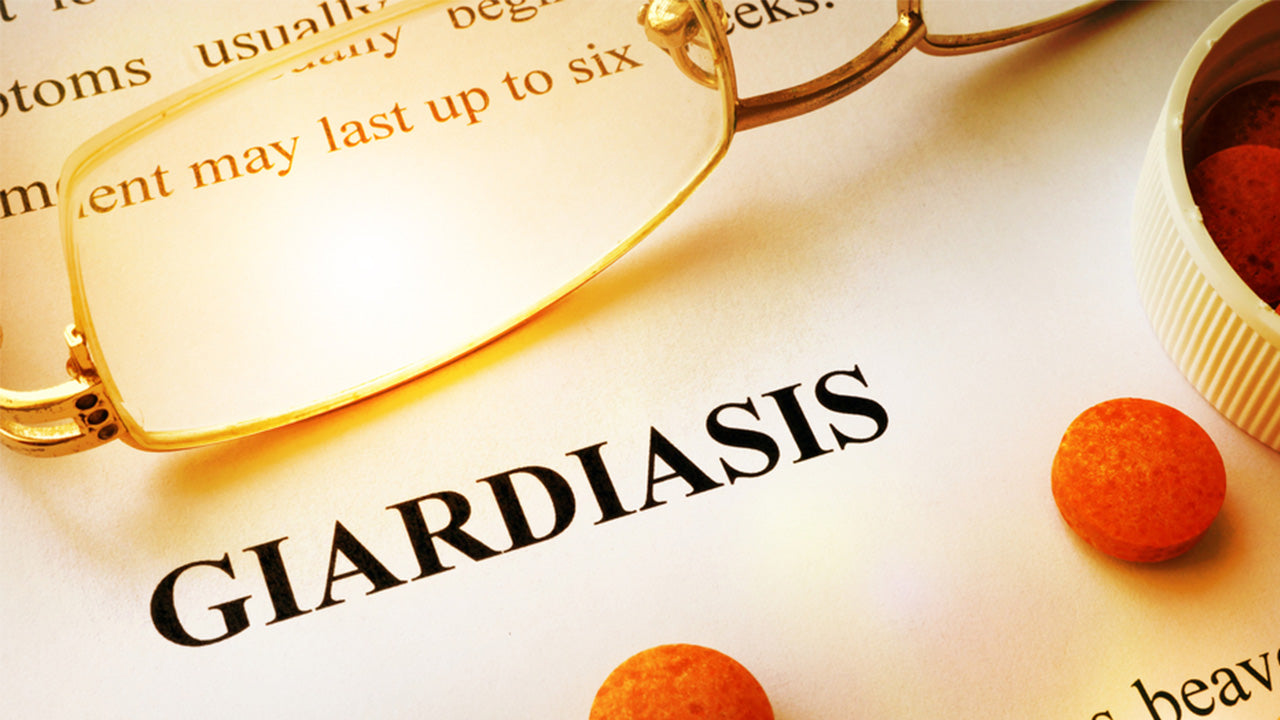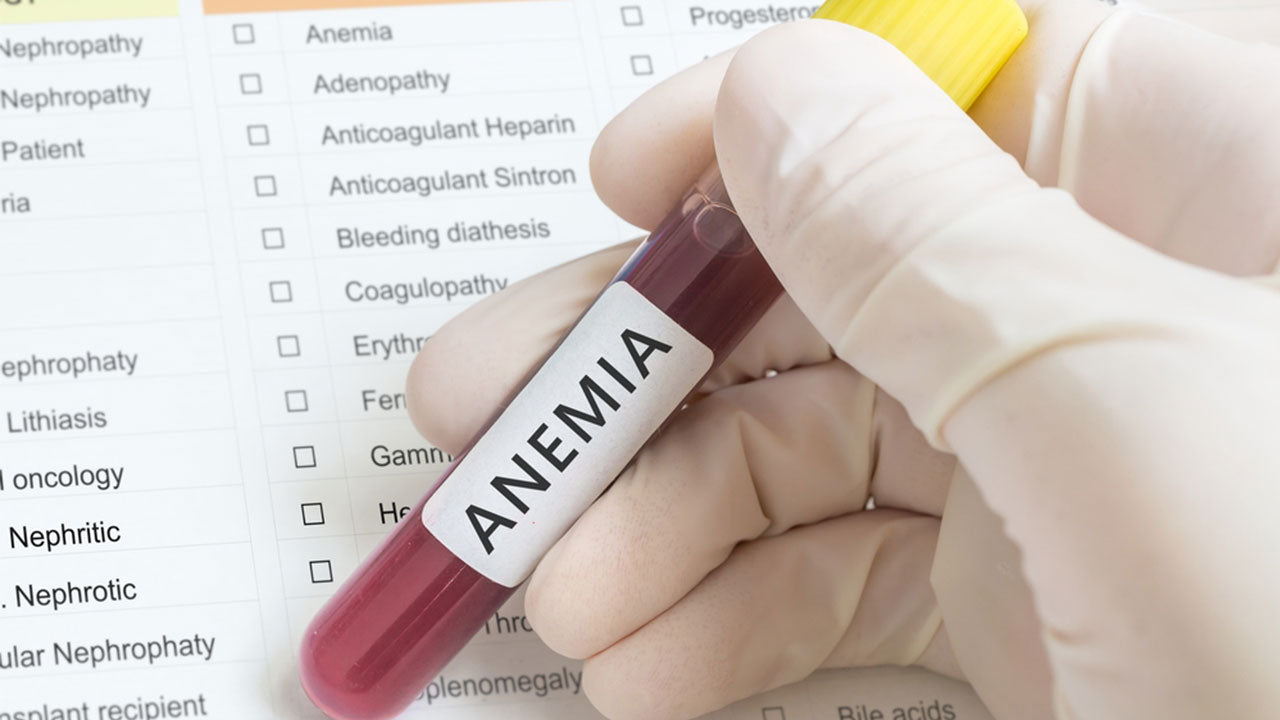Giardiasis: Symptoms, Causes, Treatment
 By: by Amino Science
By: by Amino Science

Suffering from diarrhea and abdominal cramps? Been around any recreational water sources lately? Then you might just have a case of giardiasis, an intestinal infection the Centers for Disease Control and Prevention (CDC) considers the most frequently diagnosed intestinal parasitic disease in the United States.
Caused by the microscopic parasite Giardia intestinalis (also known as Giardia lamblia and Giardia duodenalis), giardiasis is an infection that results from ingestion of the parasite cysts. Once ingested by an unwitting host, the Giardia parasites quickly invade the small intestine, where they may cause a number of unpleasant symptoms.
If you’ve been around any potential sources of this nasty little microorganism lately, read on to discover more about the causes and symptoms of giardiasis, ways to treat Giardia infection, and what you can do to decrease your risk of contracting the illness in the first place.
Causes of Giardiasis
Most people contract the parasite that causes giardiasis after coming in contact with food or water sources contaminated with the feces of infected humans or animals. Before passing out of the body in feces, the parasites first become encased in hard shells (cysts) that allow them to live outside a host for weeks or even months.
However, once ingested, the cysts dissolve in the stomach and duodenum, and the G intestinalis parasites are released into the digestive tract, where they quickly set up shop in the upper part of the small intestine.
While Giardia can be found wherever fecal contamination is possible, there are three main methods of transmission. These are:
- Waterborne: Swallowing contaminated ground or surface water from lakes, rivers, springs, ponds, streams, shallow wells, municipal water supplies, or swimming pools is the most common way of becoming infected.
- Foodborne: Eating uncooked food is a less common way of contracting giardiasis in industrialized countries, as cooking food kills Giardia, but eating raw produce that has been washed or irrigated with unsafe water can result in transmission of the parasite.
- Person to person: People who come in close contact with an infected person are at risk, especially parents with young children, children or workers in childcare settings, and people who engage in anal sex.
Symptoms of Giardiasis
Interestingly, many people infected with the Giardia parasite never show symptoms, though they’re still able to spread it to others through their stool. In those who do show signs of infection, symptoms usually appear 1 to 3 weeks after exposure and may last as long as 2 to 6 weeks or even recur days or weeks later.
Whether mild or severe, symptoms of giardiasis may include:
- Fatigue
- Nausea
- Watery diarrhea
- Greasy stool that floats
- Dehydration
- Abdominal cramps
- Excessive gas and bloating
Some people may also experience symptoms of itching, hives, and eye and joint swelling, though these manifestations are less common.
In addition, research indicates that chronic or heavy infestations of G intestinalis may result in weight loss, chronic loose stools, irritable bowel syndrome (IBS), dyspepsia, impaired cognition, chronic fatigue syndrome, and consequences of malabsorption, including B12 deficiency. Some studies have also shown that giardiasis can lead to symptoms of lactose intolerance for several weeks after the infection has been eradicated.
Diagnosing Giardiasis
The most accurate method of diagnosing giardiasis is stool sampling. However, because the Giardia cysts may be passed out of the body intermittently, to verify the diagnosis, your health care provider will most likely request that you provide several stool samples over a period of several days.
Treatment for Giardiasis
As mentioned earlier, some people simply carry the G intestinalis parasite and never show any signs or symptoms of active infection. Unless these people are deemed to pose a significant risk of spreading the infection to others, treatment will probably not be recommended. Likewise, the majority of people with giardiasis who do have symptoms often get better on their own within a few weeks.
However, in people with a diagnosis of giardiasis who have severe or persistent signs of infection, antimicrobials will most likely be recommended. The three most common medications used for this purpose are:
- Metronidazole (Flagyl)
- Tinidazole (Tindamax)
- Nitazoxanide (Alinia)
Because of the potential for adverse effects on a fetus, women who are pregnant should speak with their health care provider before beginning treatment with any of these medications.
Reducing Your Risk of Giardiasis
Unfortunately, there’s no surefire way to prevent giardiasis. However, there are a number of risk factors that increase your chance of becoming infected with the parasite that causes infection. People most at risk are:
- Children: Children are especially prone to infection with Giardia because of their increased risk of coming into contact with feces. This is particularly true of children who wear diapers or spend time in day care centers.
- People without access to safe drinking water: Hikers and campers who drink untreated water from wilderness areas without first purifying it are at increased risk. People who live in or travel to developing countries, where poor sanitation tends to be widespread, are also at risk.
- People who engage in anal sex: Having anal sex or oral-anal sex without a condom increases the risk of giardiasis.
By far, the best way to protect yourself and your loved ones from giardiasis is to practice good hygiene and avoid ingesting potentially contaminated food or water.
- Handwashing: Childcare workers and parents with young children should be sure to wash their hands thoroughly with soap and water after changing diapers. Alcohol-based hand sanitizers may be used if soap and water are not available, though alcohol does not have the ability to kill Giardia in its cyst form.
- Water safety: Avoid drinking water from lakes, rivers, springs, ponds, streams, or shallow wells before first boiling for several minutes or filtering using a filter designed specifically to remove Giardia. When visiting countries where Giardia is widespread, avoid ice and drink only bottled water. If swimming in recreational bodies of water, including pools, keep your mouth closed to avoid swallowing water.
- Food safety: When traveling to areas where Giardia is endemic, avoid raw produce and make sure all food has been thoroughly cooked. Also be sure to wash hands with soap and water before preparing food at home.
Because most cases of giardiasis will result in either very mild symptoms or no symptoms at all, and because the infection itself is generally self-limited, the prognosis for most people with giardiasis is usually excellent. However, if you experience symptoms that are severe or prolonged, including chronic diarrhea or severe abdominal pain, don’t hesitate to contact your health care provider for additional treatment.
It's always a good idea to supplement with nutritional therapies for immunity, such as essential amino acid supplements proven to help protect against illness and infection.


Up to 25% off Amino
Shop NowTAGS: conditions
Join the Community
Comments (0)
Most Craveable Recipes




 833-264-6620
833-264-6620



















